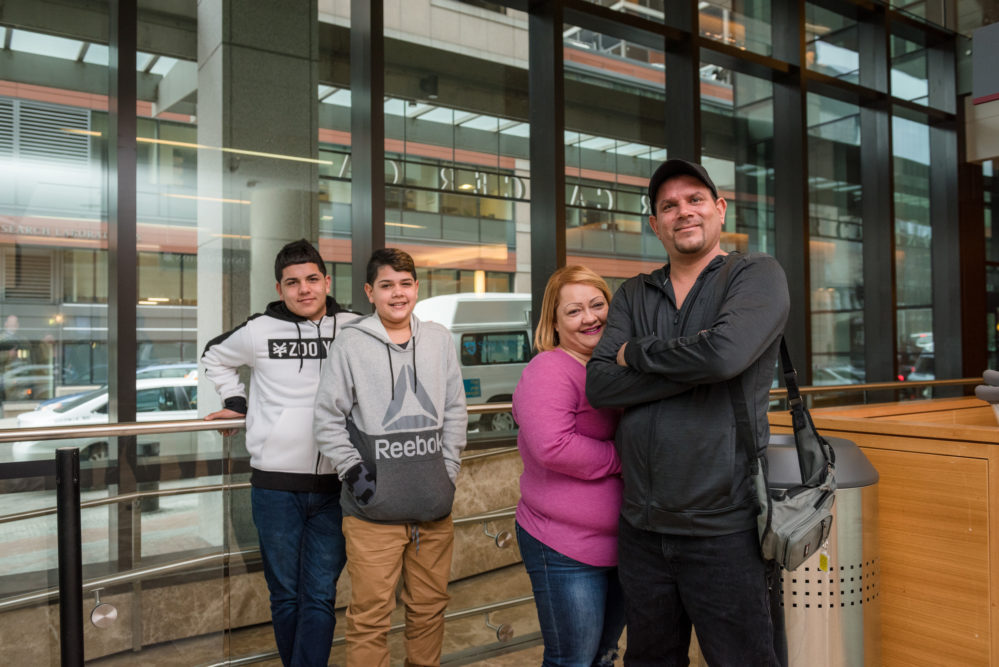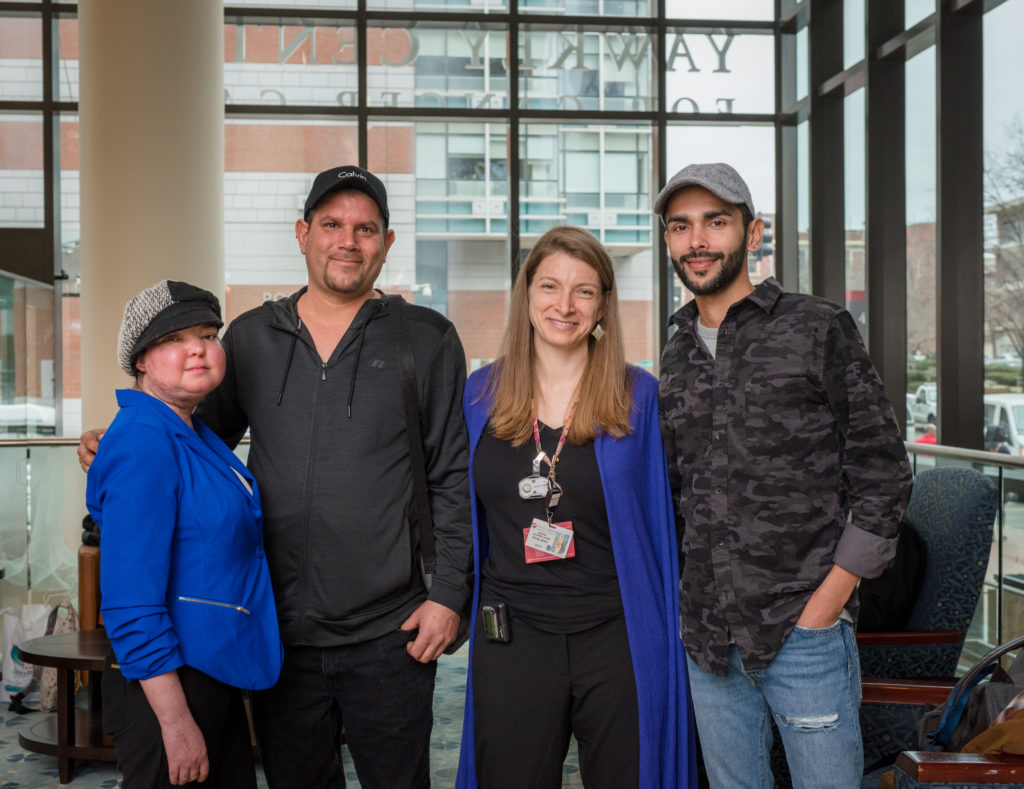For people with cancer living in Puerto Rico, the weeks after Hurricane Maria devastated the U.S. territory last September were a harrowing time. In addition to dealing with flooded homes, no power, and limited access to food and safe drinking water, many could not travel to chemotherapy infusions or other appointments. Roadways were ruined, medication was in short supply, and downed phone lines limited communication with doctors.
Now, through the help of family, friends, and state and federal agencies, many of Puerto Rico’s cancer patients are temporarily residing in the mainland United States and receiving care at Dana-Farber and other facilities. Their problems at home remain, as do new challenges here, but they are facing them with confidence and determination.
“We are finally getting the care we need,” says Ernesto Rivera Vazquez, 40, who is living at a Boston-area hotel with his wife and two sons while undergoing treatment at Dana-Farber. “I have colorectal cancer, and at home I couldn’t even cross the street because of the flooding. When I came to Dana-Farber, I learned the cancer had spread to my lungs – something the doctors in Puerto Rico had not seen.”

Vazquez, his family, and many other Puerto Rican evacuees are assisted in their transition to the U.S. by groups including the Federal Emergency Management Agency (FEMA), the Massachusetts Emergency Management Agency, and the United Way. The state’s 22 Family Resource Centers help evacuees register with FEMA for disaster benefits and provide critical case management support including access to career centers, donated goods, and temporary housing at hotels, shelters, or with host families.
At Dana-Farber, guidance and support comes from caregivers like clinical social worker Rachel Allende, MSW, LICSW. Fluent in Spanish, Allende provides emotional support and is an advocate for the Vazquezes and other evacuees if they encounter problems accessing their FEMA benefits, MassHealth medical insurance, or other resources. Members of Dana-Farber’s Interpreter Services Department are available to help patients communicate with their doctors, nurses, and other caregivers, and Security staff can often be spotted conversing with the newcomers in Spanish as they arrive at the Yawkey Center for appointments.
Learn More:
“These patients and their families are incredibly resilient people,” says Allende. “Many of them have lost everything, and had to pick themselves up and come to the mainland for their cancer treatment. Watching our community come together to help them is wonderful.”

Local ties to their homeland can be another valuable resource. Vasquez’s sister already lived in the Boston area before the hurricane, and has been of great help as he and his wife and sons adapt to their new home and language. For lymphoma patient Edwin Figueroa Jr., the key contact was Melanie Melendez Caro – a college student with a rare leukemia who he met when both were undergoing cancer treatment in Puerto Rico.
Melendez Caro, 23, had moved with her parents to Boston in spring 2017 to receive a stem cell transplant at Dana-Farber. After the hurricane, Figueroa’s doctor recommended that he make a similar move – so he texted Melendez Caro. Within an hour, says Figueroa, he was video-chatting with her and Allende about the steps necessary to get him to Dana-Farber.
“By the time I got here, I had gone more than 90 days without treatment for my lymphoma and other medical issues,” says Figueroa, 36. “Now I’m doing much better. Melanie and Rachel are my new best friends.”
Then he smiled.
“I always wanted to see Boston, but I didn’t think it was going to be like this.”
Donations for Hurricane Maria victims can be made at World Hope International.
Learn more about Social Work at Dana-Farber Cancer Institute.
